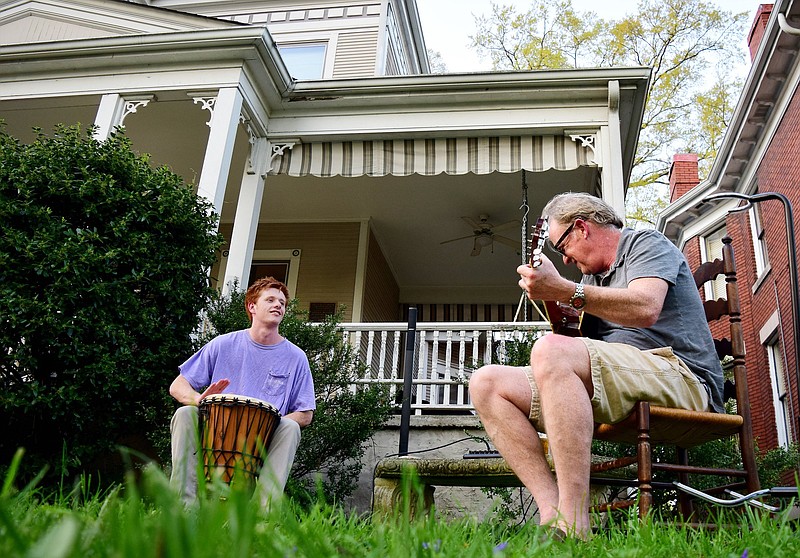Even after coronavirus finishes with us, we'll be left with PTSD - post traumatic stress disorder.
A local doctor said as much to us over the weekend, and of course he's right.
What's more, that PTSD likely won't just affect medical personnel.
No, the PTSD we're talking about also will apply to families and their relationships, scarred by too much - or too little - time together; to businesses forced to close and workers who feel betrayed with layoffs or pay cuts; to government officials, who've shouldered burdens and blame in a time when they can't or won't keep running services and online meetings. Perhaps there will even be PTSD among the public and politicians after they are caught stripped of their normal ability to just talk rather than make sense - and we notice.
There's no doubt about it. This is a frightening time.
Perhaps you took note of it today as you scrambled out to the grocery store for some judicious stocking up after Tennessee Gov. Bill Lee on Monday issued a two-week, statewide "safer-at-home" order closing non-essential businesses and telling Tennesseans to stay home to combat COVID-19. A chyron running along the bottom of our television screens tuned to CNN says three-quarters of Americans are now under stay-at-home orders.
Last week at the store, everyone smiled at everyone, like a secret signal of "we'll get through this." Clerks added to the usual "Have a good day," with "Stay safe."
This week, after watching the virus in America climb to the top of the global chart as our cases more than doubled China's, the faces in the grocery store appeared more worried. Patrons gave each other a wide berth in the aisles. No one talked, except to ask where to find something.
There still aren't enough tests for anyone to know even if our case numbers are remotely correct, and news organizations are running story after story like Tuesday's New York Times how-to opinion column headlined: "It's Time to Make Your Own Face Mask," with a downloadable template. Of course, an East Ridge seamstress and owner of Ready Set Sew, Melanie Coakley, was onto this idea before it was cool. She makes masks for nurses in our local hospitals.
Thomas Inglesby, director of the Johns Hopkins Center for Health Security, recently said the CDC should urge people to use nonmedical masks or face coverings anytime they venture out in public. The CDC reportedly is considering such a recommendation.
Mental and emotional health experts tell us that it is the uncertainty in all this that's so disconcerting.
Well, no joke.
But we all have to find that fine line - the yellow brick road, if you will - of staying informed but also staying refreshed, whether it's sewing or reading or listening to music or pulling weeds in the garden.
Social distancing is lonely: Humans are social animals, hardwired for connection. Yet social distancing is the biggest thing most of us can do right now to make a positive difference. Evidence shows that many people with coronavirus - particularly young, seemingly healthy people - don't have symptoms but can still spread the virus.
(READ MORE: Photos, video: Music unites Fort Wood neighborhood during coronavirus outbreak)
Perhaps that's why the cosmos and the techie time we live in gave us phone lines, Facebook chat, Skype dates, FaceTime, Zoom and Slack.
Everyone knows chats, FaceTime and Skype. But Zoom and Slack up the ante. Zoom is a virtual meeting application that's free for small groups (and used a lot for online classes). And Slack, also free in limited version, is a group messaging system. Just watching the Times Free Press threads on Slack - and the dedication practiced by our reporters and editors is a tremendous mood leveler. We encourage everyone to find a similar virtual outlet with people you trust.
Most of all, let's all be good to each other and ourselves.
We'll have time enough for PTSD when the fevers break.
